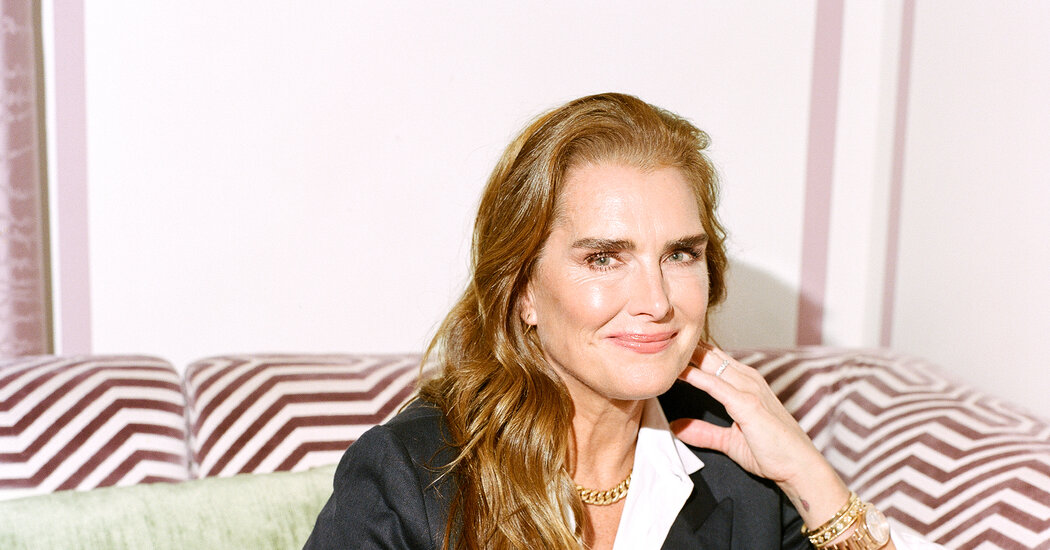
Brooke Shields has a new office. It’s empty, and she hasn’t figured out how she wants to furnish it, or even how often she’ll be there, but it’s a sign of her new and unexpected status, as president of Actors’ Equity Association, the labor union representing theater actors and stage managers in the United States.
Shields’s candidacy was a surprise, even to herself. But when Kate Shindle, who had led the union for nine years, announced in April that she was stepping down, Shields’s music director suggested she consider the opening, and soon enough, she had tossed her hat in the ring, and in May she won the vote by members, defeating two more-seasoned labor activists. She’s already led her first meeting of the union’s council, and came away realizing she has a lot to learn, starting with parliamentary procedure.
Shields, of course, is one of those people who has been famous for so long, and in so many ways, that even she can’t remember a different time. She was a childhood model, a preteen movie star, a sex object and an icon of beauty, all before she went off to college (Princeton, thank you very much). In the years since, she has acted onscreen and onstage, has written books, has spoken widely, particularly about depression, and has become a symbol and a subject for an evolving discussion about how women and girls have been sexualized by the entertainment and fashion industries.
She has had five roles on Broadway, each time replacing a principal in an already-running show (“Grease,” “Chicago,” “Cabaret,” “Wonderful Town” and “The Addams Family”). She has also performed occasionally at regional theaters (“The Exorcist” at the Geffen in Los Angeles, for example) and Off Broadway (in the star vehicles “Love Letters,” “The Vagina Monologues,” and “Love, Loss, and What I Wore,” among others).
Now, at 59, she is thinking a lot about middle age. She is recovering from a foot surgery that attracted attention when she wore Crocs (yellow, matching her dress) to the Tony Awards. She has just started a new beauty business, Commence, with hair-care products developed for women over 40; she is writing another book, also aging-focused; and she is seeking new ways to harness the celebrity she can never shed. That’s where Equity comes in — she says actors and stage managers were extraordinarily supportive of her when she needed to jump quickly into an unfamiliar show. Now she wants to give back.






